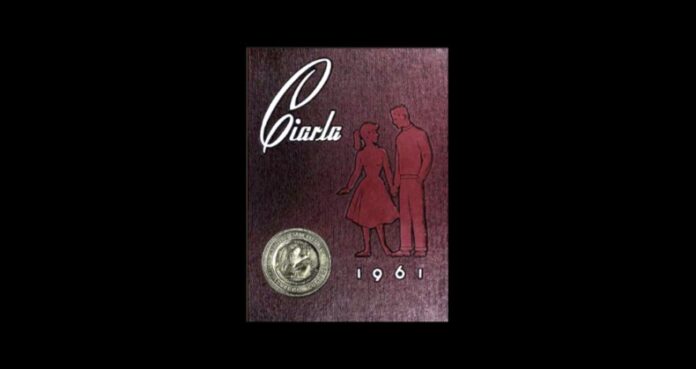On Nov. 7, the Student Government Association (SGA) announced that the Ciarla would halt publication, at least temporarily. The yearbook has been a facet of the College for 130 years, with the first edition coming out in 1893. It may seem unprecedented for Muhlenberg to stop a tradition that has been in place for over a century. However, the SGA did outline its reasons for making this decision.
In their emailed statement, they noted that a lack of student involvement in the Ciarla yearbook club was one factor that led to this change saying, “Recent editions of the Ciarla went to press only through the hard work of very small student teams and with significant staff support, making it increasingly challenging to produce a comprehensive and engaging, student-managed publication.”
The SGA also stated that there was a decrease in demand for the publication. They expressed in their statement that “In recent years, we have also observed a decline in the demand for traditional yearbooks. With the rapid rise of digital media and alternative ways to capture and share memories, the demand for print yearbooks has diminished, making it challenging to justify the continued investment.”
Finally, the last listed factor was an increase in cost to produce the book. They noted that “The cost of producing a high-quality yearbook has risen significantly, including expenses related to photography, design, printing and distribution. Unfortunately, this has strained resources and makes it financially unsustainable to continue the publication without sufficient demand.”
SGA President Jake Forstein ‘24 gave some context regarding the SGA’s role in this decision. “The yearbook used to be one of SGA’s permanent organizations, which basically means that they got a budget at the beginning of the year off the top…[In spring of 2022] the General Assembly voted to not make the yearbook a continued permanent organization for a few reasons. One being they were only doing one big request every year, and generally our permanent organizations have multiple, big requests throughout the year, to a point where it’s overwhelming for our finance committee to have to deal with,” said Forstein.
Forstein continued, noting, “[The Ciarla] was a resource that was only benefiting seniors. People were paying the student activities fee for four years under the understanding that they would eventually get a yearbook their senior year. But it also wasn’t free to seniors, so they weren’t getting a free yearbook, they were getting a yearbook that they had to pay for anyway.”
Former editor-in-chief of the Ciarla, Julian Torres ‘25 commented on the Ciarla staff’s knowledge of the yearbook’s possible cancellation. He stated, “If I’m being entirely honest here, I knew about the decision to stop making yearbooks since last semester. In one of my meetings with [Director of News & Media Relations] Kristine Todaro, the supervisor for the yearbook, she told me that there was a high probability of discontinuing the yearbook due to the fact that there just really wasn’t much support or student volition to do so.”
Forstein added more insight regarding Todaro’s involvement, saying, “At the end of last semester, the current treasurer, Evan Lipman ‘24, met with [Todaro], who essentially said ‘there’s so few people left in this organization, no one really wants to keep this thing going, I think that we should end it.’”
Torres added to the point regarding low levels of interest saying, “last year we sent out emails to the entire school about interest meetings and only two kids would show up per meeting. We later got help from some Media & Comm interns, and we ended up with a team of like five students.”
Shobha Pai ‘24 worked on the Ciarla’s production staff. Pai expressed her thoughts on the matter, saying, “I understand SGA’s decision…it was extremely exhausting because it was pretty much just me and [Todaro] working on it. We did not get a lot of student support because a lot of people on this campus see it as a waste of time. I am still grateful I worked on it because it made me a part of Muhlenberg history. [Todaro] is a great boss and really helped me carry the load.”
The lack of a yearbook does not, however, mean that seniors will have to forgo their senior portraits. This service will still be offered on campus at no cost to the graduating class of 2024.
According to the SGA, the funds that would have been allocated to the Ciarla will now be used “to continue to bolster those student involvement opportunities that current students are most excited about.”
Torres summarized the evolving role of yearbooks, saying, “the point being made is that in this age of social media, there are so many other ways to keep track of your college memories and the things you want to hold on to. Do students really still need or use their yearbooks anymore? I mean you can easily take photos of things you want to capture on your phone. Your Instagram page essentially functions as a scrapbook. I enjoy yearbooks, but I do get the argument of them no longer being that important.”






















